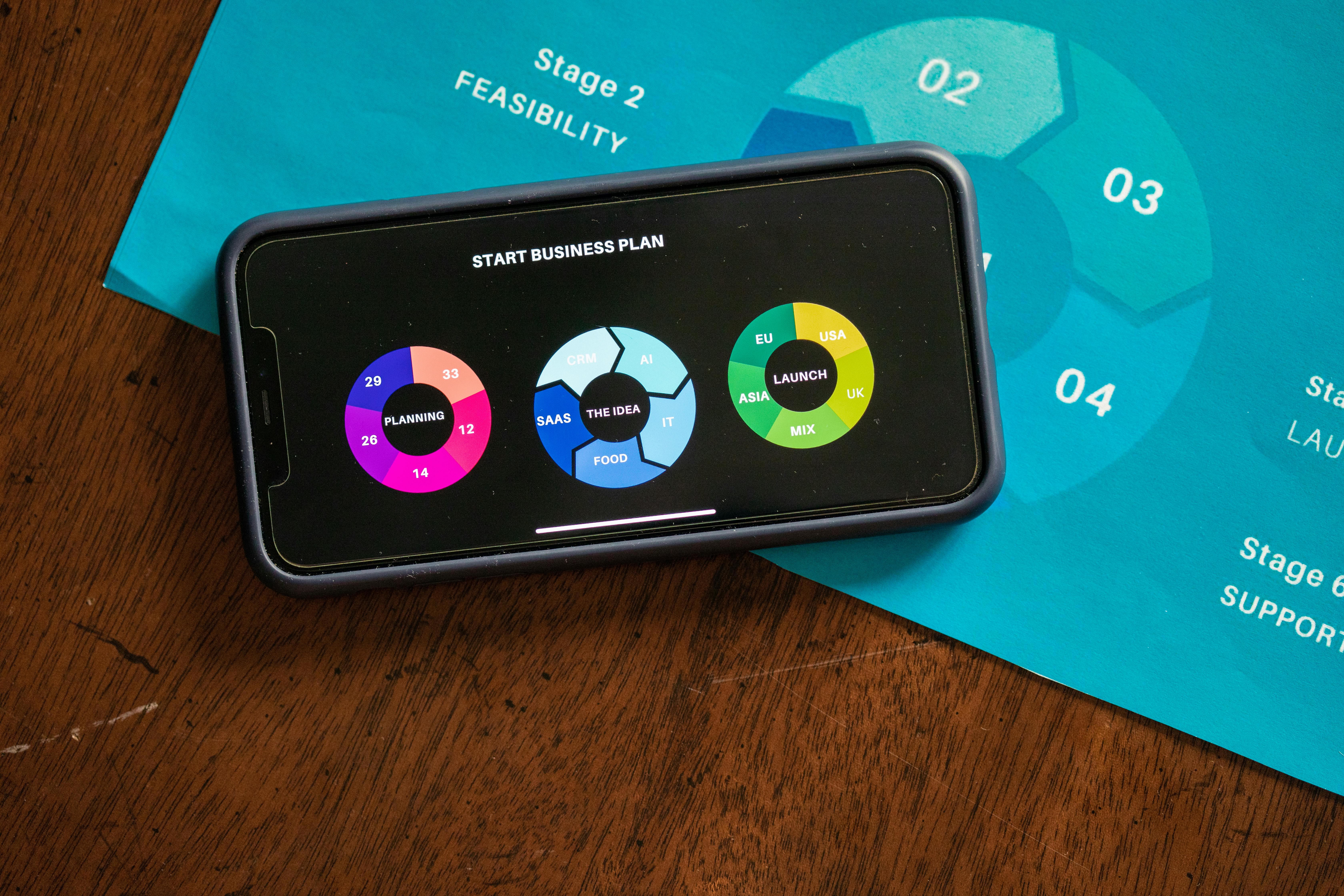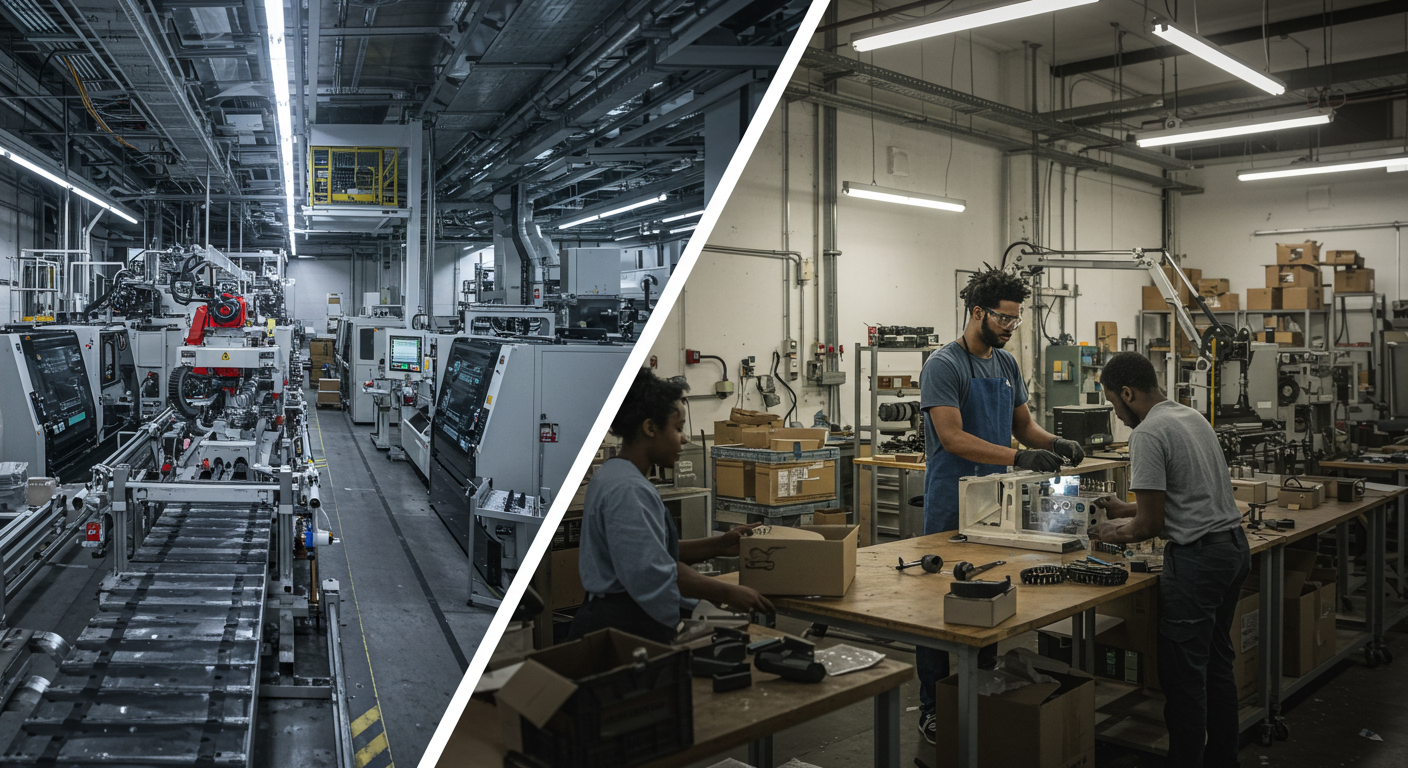Why SaaS Startups Fail in Nigeria — And How NodeShift is Building Differently
by Samson Odo, Founder & CTO

In the U.S., Software as a Service (SaaS) is a golden ticket. Build a tool, slap on a subscription model, and scale to billions. Think Slack, Zoom, or Salesforce.
But in Nigeria, that playbook is a one-way ticket to failure.
The economic and infrastructural realities — low digital payment adoption, unreliable internet, and cash-strapped SMEs — make the U.S. SaaS model a tragic mismatch.
At NodeShift, we’ve seen the graveyard of Nigerian SaaS startups firsthand.
It’s obvious: copy-pasting Silicon Valley doesn’t work here.
Here’s why — and how we’re building differently:
The U.S. SaaS Model Meets Nigerian Realities
The U.S. SaaS model thrives on:
- High subscription fees
- Seamless digital payments
- A robust credit system
- Reliable internet
In Nigeria, none of those foundations exist at scale.
- Internet penetration sits at just 49.5%, with frequent disruptions.
- Digital payments barely scratch 20% adoption nationwide.
- SMEs — the backbone of Nigeria’s economy — operate on razor-thin margins.
Recurring fees simply don’t fit their cash flow reality.
Examples are everywhere:
- Carpoola, a ride-sharing SaaS, mimicked Uber’s subscription model but collapsed in 2019 from low adoption and payment friction.
- Vendease, a Y Combinator-backed food procurement platform, had to pivot after struggling to scale on subscriptions alone.
Over 60% of Nigerian startups fail within three years — and SaaS ventures are no exception.
Foreign SaaS Giants Play by Different Rules
Global giants like Netflix and YouTube Premium survive in Nigeria — but only because they can afford extreme price cuts.
If they had to bootstrap here?
They’d be dust.
How They Price for Nigeria (Exchange rate ≈ ₦1,600/$ as of March 2025)
| Service | U.S. Price | Nigeria Price | Discount |
|---|---|---|---|
| Netflix Premium | $29.99 (~₦47,984) | ₦7,000 (~$3.38) | 89% |
| YouTube Premium | $13.99 (~₦22,384) | ₦1,100 (~$0.69) | 95% |
| Coursera | $50 (~₦80,000) | ₦25,000 (~$15.60) | 68% |
| Starlink | $120 (~₦192,000) | ₦38,000 (~$23.75) | 80% |
Netflix, with 270 million global subscribers, can subsidize a ₦7,000/month plan here.
A Nigerian startup? Nowhere near.
Starlink’s Nigerian operation only works because it’s backed by global revenues.
Deep discounts aren’t a growth hack — they’re a privilege of global scale.

Why Nigerian SaaS Startups Can’t Survive the U.S. Way
Imagine a Nigerian SaaS startup charging $50/month (~₦80,000).
Meanwhile, the average monthly income is about ₦124,000 (TechNext, 2023). That’s over 60% of earnings — before rent, food, transport, or anything else.
Even Starlink’s ₦38,000/month internet plan is a stretch for most businesses.
It’s why many stick to ₦1,000–₦5,000 data bundles from local ISPs — cheap, unreliable, but affordable.
🚫 Subscription models misfit local spending habits
🚫 Low digital adoption makes scaling hard
🚫 Unstable infrastructure disrupts cloud services
In the U.S., credit systems also mask the true cost of subscriptions.
While in Nigeria, every naira spent must first be earned — upfront and in cash.
Two real-world casualties:
- A Nigerian AI chatbot startup folded when free alternatives gained popularity.
- A recruitment SaaS lost out to SMEs who preferred WhatsApp and manual hiring over paid digital tools.
The U.S. SaaS model assumes:
- Scale
- Stability
- Seamless digital finance
Nigeria has none of these — yet.
NodeShift’s Playbook: SaaS Built for Nigeria
Top tip
The future of SaaS in Nigeria isn’t in forcing subscriptions.
It requires creating solutions that actually fit how businesses operate.
🔹 Flexible Pricing — Scalable models, not rigid monthly fees.
🔹 Seamless Local Payments — Integration with mobile money, POS agents, bank transfers.
🔹 Offline-First Engineering — Software that works even with bad connections.
🔹 Cost-Effective Development — Lean, efficient builds that don’t bleed cash.
🔹 Resilient Scaling — Grow profitably without requiring massive VC injections.
Where Netflix slashes prices to survive, we bake affordability in from day one.
Where Starlink flexes global power, we rely on local ingenuity.

The Future: SaaS, Nigerian-Style
The U.S. SaaS model is a siren song: tempting, but deadly here.
Foreign giants survive by adapting, but startups born in Nigeria must build different from the start.
At NodeShift, we’re proving there’s a better way:
✅ Integration over isolation
✅ Practicality over hype
✅ Local-first solutions over imported dreams
To survive in Nigeria, you must build around real economies — not just subscription fantasies.
